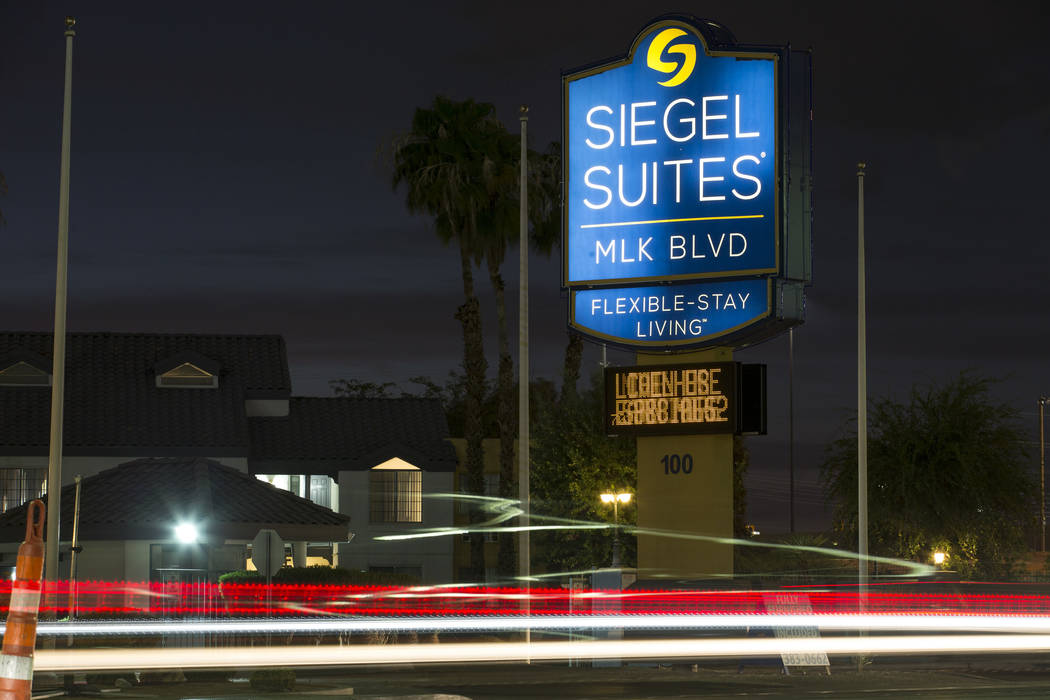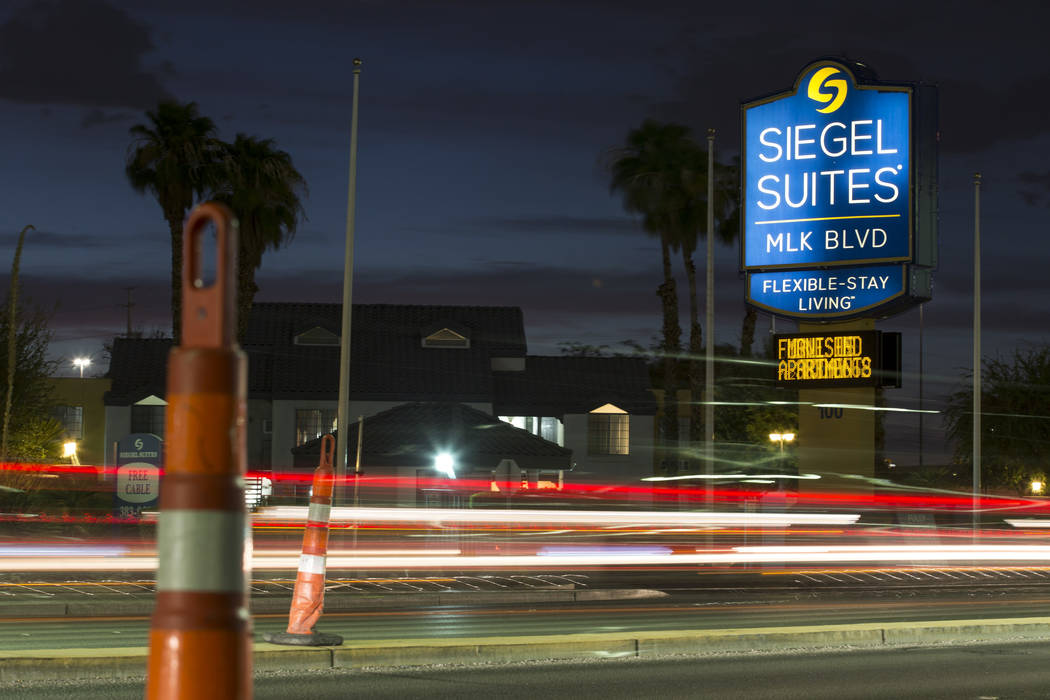Clark County room tax hauls in millions from Nevadans




The hotel room tax is commonly described by public officials as being levied solely against tourists.
“It’s not a tax that’s on the people who live here, and we need to continue that messaging,” departing Las Vegas Convention and Visitors Authority CEO Rossi Ralenkotter told the LVCVA board last week.
While the vast majority of hotel room tax is paid by tourists, estimates from the LVCVA indicate that Southern Nevada annually collects tens of millions of dollars from state residents.
Some of that money comes from Nevadans from other counties vacationing or doing business here; some comes from locals enjoying staycations; and some is from Las Vegans struggling to make ends meet.
That is because extended-stay hotels, which appeal to low-income locals with weekly and monthly room rentals, have tax rates similar to resorts catering to tourists.
Clark County Social Service Director Michael Pawlak said hotels like Budget Suites and Siegel Suites attract people who don’t have the financial means to sign an apartment lease or save up for move-in costs. But those residents pay the room tax intended for tourists during their first 30 days at any hotel.
“Many folks at minimum wage or below, or even a little bit above, are unable to save enough money to not only afford a standard monthly rent but also be able to come in with a move-in deposit, security deposit, cleaning deposit and paying to turn utilities on,” Pawlak said.
A government survey of homeless residents conducted this year found that 2 percent of surveyed residents typically stay at a hotel or motel at night.
“We know from interactions with our clients that often times when they stay at one of the various short-term rental places in town they end up needing our services when their funds run out,” Catholic Charities spokeswoman Leslie Carmine said.
Primarily paid by visitors
Clark County began collecting hotel room tax in 1957.
The initial purpose was to pay for the promotion of tourism in Southern Nevada, but as time passed the tax grew to fund more endeavors.
The room tax last increased in early 2017 after Nevada lawmakers earmarked tax revenues for construction of an NFL stadium as well as expansion and renovation of the Las Vegas Convention Center.
The tax is 13 to 14 percent for Las Vegas Valley hotels and as low as 10.5 percent for lodging in rural communities. About one-third of revenues fund the LVCVA and the Nevada Commission on Tourism, another third goes to education and the rest is split among transportation projects, the stadium project, the convention center project and local governments.
The LVCVA reports that hotels in Clark County collected $738 million in room tax revenue during the 2017 fiscal year. The agency estimates that about 5 percent, or $36.9 million, was paid by Nevada residents.
How much of that money comes from extended-stay hotels remains unclear. Officials at the county and its cities, which collect the tax from the hotels, say they cannot release those numbers because of state law and municipal code.
LVCVA spokeswoman Jackie Dennis said her agency recognizes that locals do pay a portion of the room tax.
“However, it was created (for) and continues to be primarily paid by visitors,” she said.
Contact Michael Scott Davidson at sdavidson@reviewjournal.com or 702-477-3861. Follow @davidsonlvrj on Twitter.














